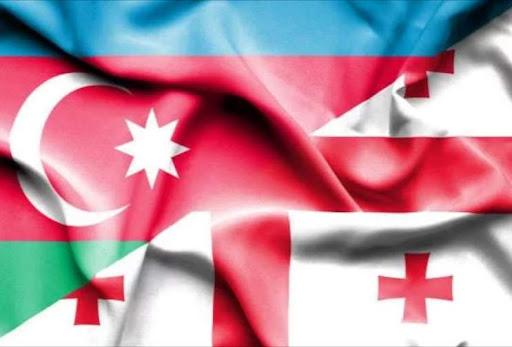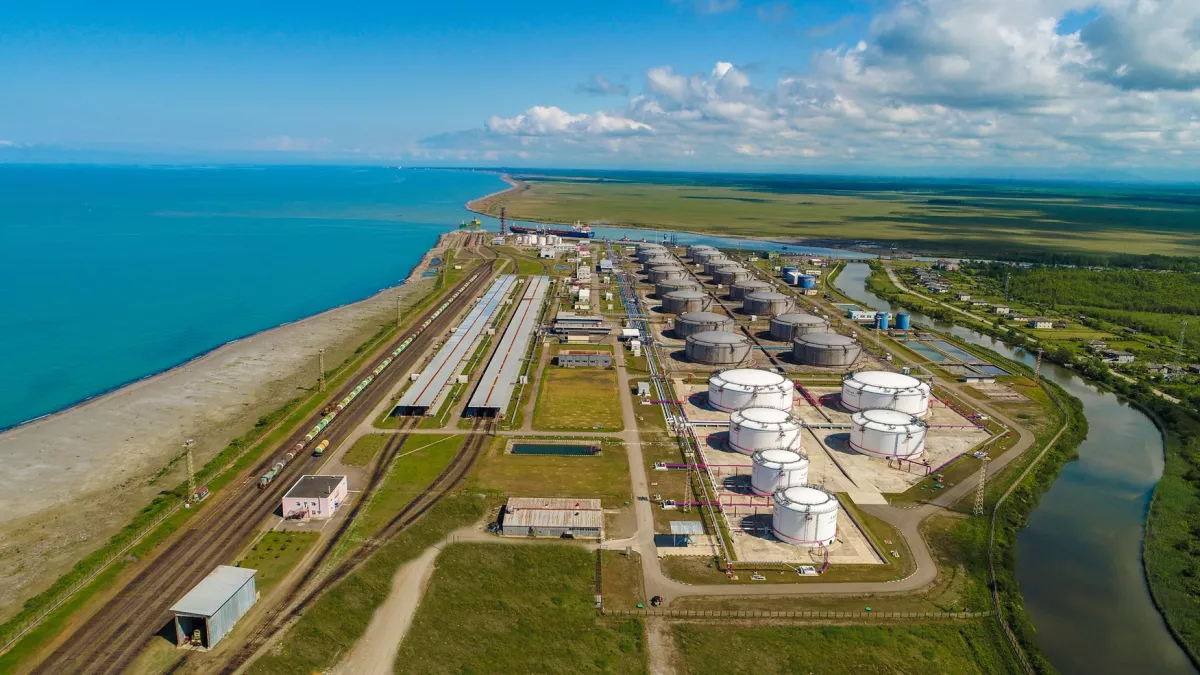Azerbaijan's SOCAR playing key role in Georgia’s energy sector Growing investments
Over the past quarter-century, one of the most effective business partnership systems in the post-Soviet space has been formed in the South Caucasus region, uniting the energy, transportation-logistics, and agro-industrial potential of Azerbaijan and Georgia.
Azerbaijan has traditionally been the leading investor in the Georgian economy, with a significant portion of investments coming through SOCAR Energy Georgia, a subsidiary of the State Oil Company of Azerbaijan (SOCAR). Specifically, these investments have been directed towards the oil terminal in the port of Kulevi, oil depots, a network of gas stations, and distribution gas pipelines. Efforts in this area continue: recently, the government of Georgia approved the sale of the gas pipeline network in the western regions of the country to the Azerbaijani company SOCAR Gas Georgia.
For many years, Baku and Tbilisi have been closely connected through joint transportation and energy projects: a network of oil and gas transit pipelines has been laid across both countries, and terminals for handling oil, fuel, and petrochemical products have been built in Georgian ports. Through these terminals, raw materials from the Caspian region are exported to the markets of the Black Sea and Mediterranean countries, successfully ensuring Europe's energy security.
In recent years, Baku and Tbilisi have also been dynamically implementing projects for the export of electricity to the Turkish market, with subsequent transmission to several Southern European countries. Equally significant are their joint initiatives in the transportation-logistics sector: for about seven years, the partners have been transiting cargo via the Trans-Caspian International Transport Route (TITR), utilizing the capabilities of the upgraded Baku-Tbilisi-Kars (BTK) railway corridor, which, in 2024, connected Europe and Türkiye with Central Asia and China.
For many years, Azerbaijan has traditionally been one of the top four trading partners of Georgia. Even despite a slight decline in trade turnover in January-October of this year, with a total volume of almost $1.07 billion, Azerbaijan undoubtedly retains its leading position in the post-Soviet region.

Azerbaijan, together with Türkiye, has been one of the leading investors for many years, increasing the capitalization of the Georgian economy. Currently, there are about 650 companies with Azerbaijani capital operating in Georgia, and since 1995, Azerbaijan has invested over $3.5 billion in the Georgian economy. In recent years, Azerbaijan, alongside the United Kingdom, Türkiye, Japan, and Malta, has been among the top investors in Georgia. Although the peak period of investment activity has passed, in the last two years, the governments of both countries have been actively diversifying business relations, expanding potential areas for increasing capitalization.
"Georgia and Azerbaijan are working to unlock the full potential of bilateral trade, with Azerbaijani investments in the Georgian economy continuing to grow," stated the economy ministers of both countries, Mikayil Jabbarov and Levan Davitashvili, during a meeting in Baku at the end of November 2024. The meeting emphasized the importance of expanding investment and strengthening cooperation on regional infrastructure projects. It was also noted that Azerbaijani investments in the Georgian economy are on the rise.
Azerbaijani investors are increasingly interested in sectors such as transportation, logistics, construction, finance, industry, real estate, and telecommunications. According to data from the National Statistics Office of Georgia, Azerbaijan invested $53.6 million in the Georgian economy last year, a 31.5-fold increase compared to the previous year.
For the past fifteen years, the leading role in the investment flow has been played by SOCAR Energy Georgia, a subsidiary of the State Oil Company of Azerbaijan (SOCAR), which has invested over $1.1 billion in various projects in Georgia. According to Forbes, SOCAR Energy Georgia is currently one of the largest companies in Georgia, employing more than five thousand people. One of its first major projects was the commissioning of the Black Sea oil terminal in the Georgian port of Kulevi in May 2008, with an investment of $350 million. The terminal in Kulevi has a capacity of 10 million tons of oil and petrochemical products per year, mainly supplied from Azerbaijan and Central Asian countries by rail, sea vessels, tank trucks, and other means.

SOCAR Energy Georgia has made multimillion-dollar investments in creating a retail fueling network across Georgia, including several oil depots and dozens of gas stations. Today, under the "SOCAR" brand, 107 gas stations operate in the neighboring country, 15 of which feature electric vehicle charging points.
Between 2007 and 2009, SOCAR Georgia Gas, a subsidiary of SOCAR, initiated the first phase of Georgia’s natural gas expansion project, modernizing and building from scratch 880 kilometers of main and distribution gas pipelines, supplying natural gas to about 90,000 households. Since then, the modernization of Georgia’s gas distribution system has steadily expanded. From 2007 to 2023, the company laid over 11,200 kilometers of new pipelines, bringing natural gas to more than 700 settlements in Georgia. Notably, SOCAR Georgia Gas also invested its own funds to build pipelines in the Kvemo Kartli and Kakheti regions, where ethnic Azerbaijanis live in compact communities.
To grasp the scale of the work, it is worth noting that by the end of 2008, Georgia’s natural gas coverage was at 46%, with 71,000 gas network users. By early 2024, the number of users of Georgia’s gas networks had grown to 870,000, and it is expected that by the end of 2024, the natural gas coverage in Georgia will approach 90%.
Apparently, Azerbaijan’s investment activity in Georgia's gas sector remains strong. Recently, Georgian Prime Minister Irakli Kobakhidze signed an order approving the direct sale of gas pipelines in the western regions of Georgia to the Azerbaijani company SOCAR Georgia Gas for 19.8 million lari ($7 million). According to Sputnik Georgia, this involves the privatization of 41 pipelines in villages across the regions of Imereti, Guria, and Samegrelo-Zemo Svaneti. The process is set to take 17 years, with payments to the Georgian state starting in 2032. SOCAR Georgia will make annual payments of nearly 2 million lari ($711,743) for the next 10 years.
Currently, SOCAR continues to be a key supplier of natural gas, oil, and petroleum products to Georgia, while SOCAR Georgia consistently implements various economic, energy, humanitarian, and other projects in the country.








